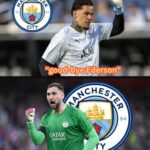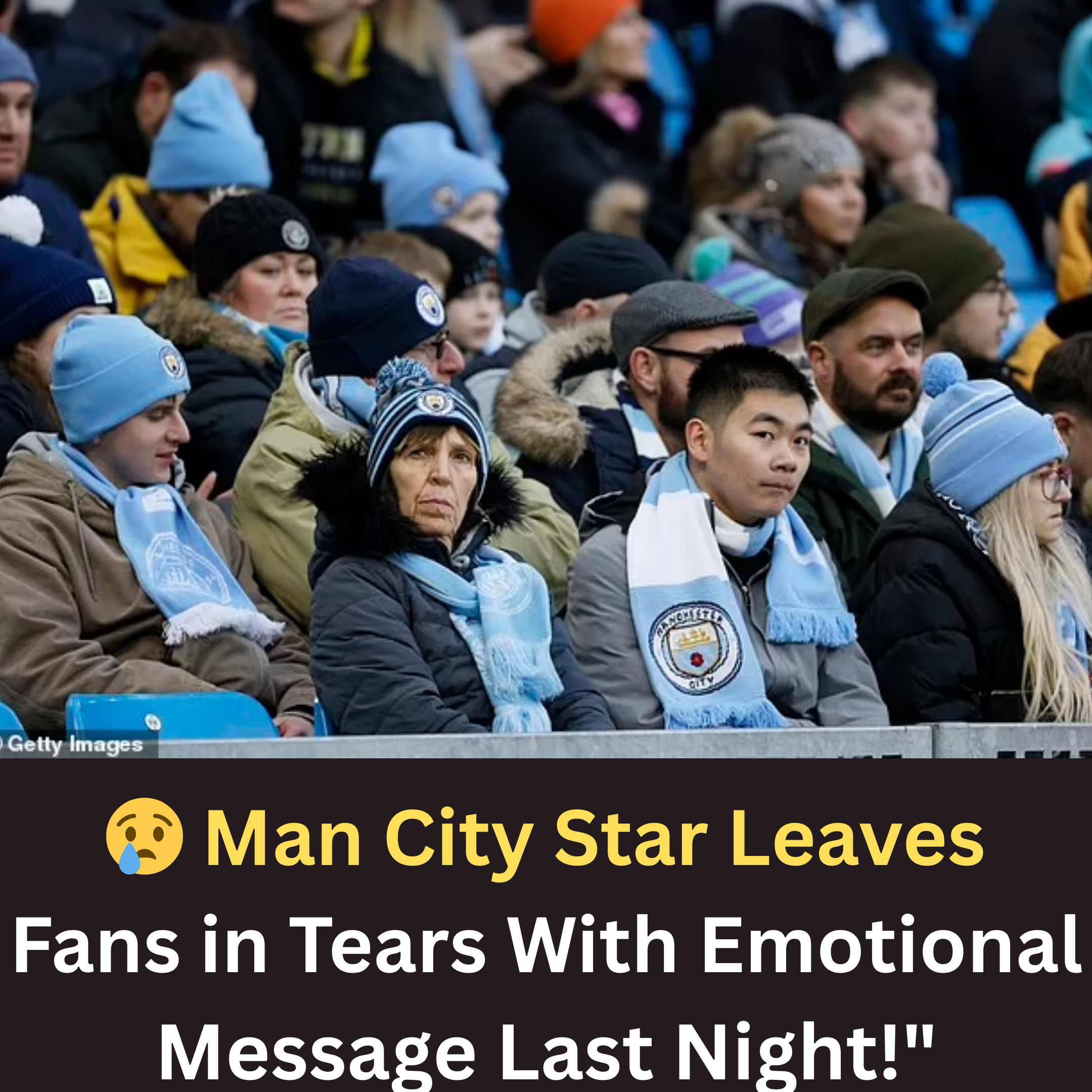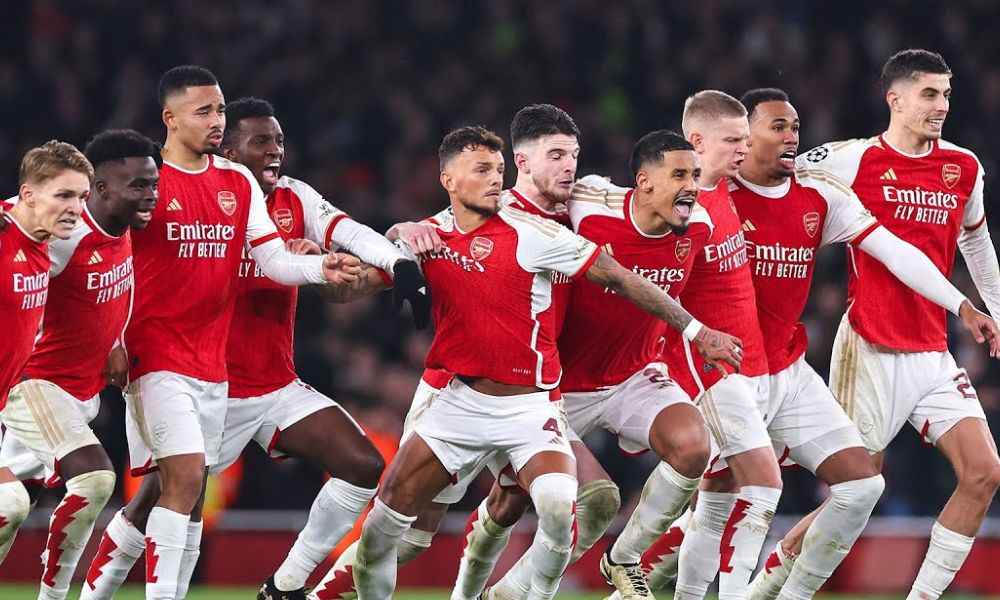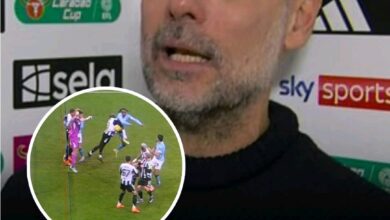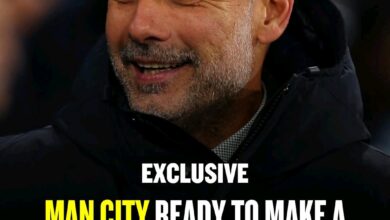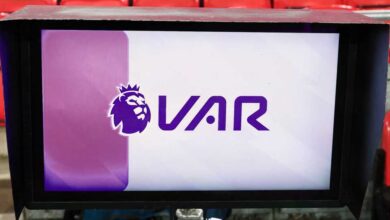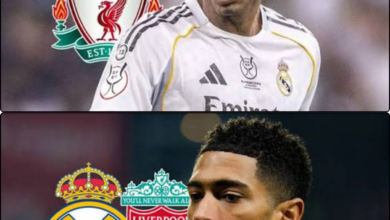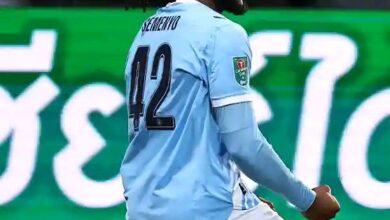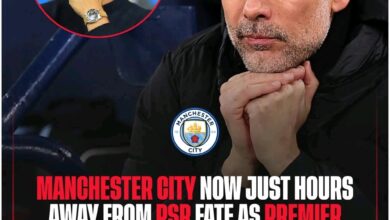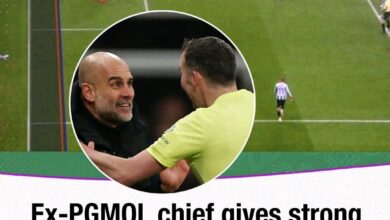Jack Grealish and Pep Guardiola: A Concert Encounter That Could Define a Career
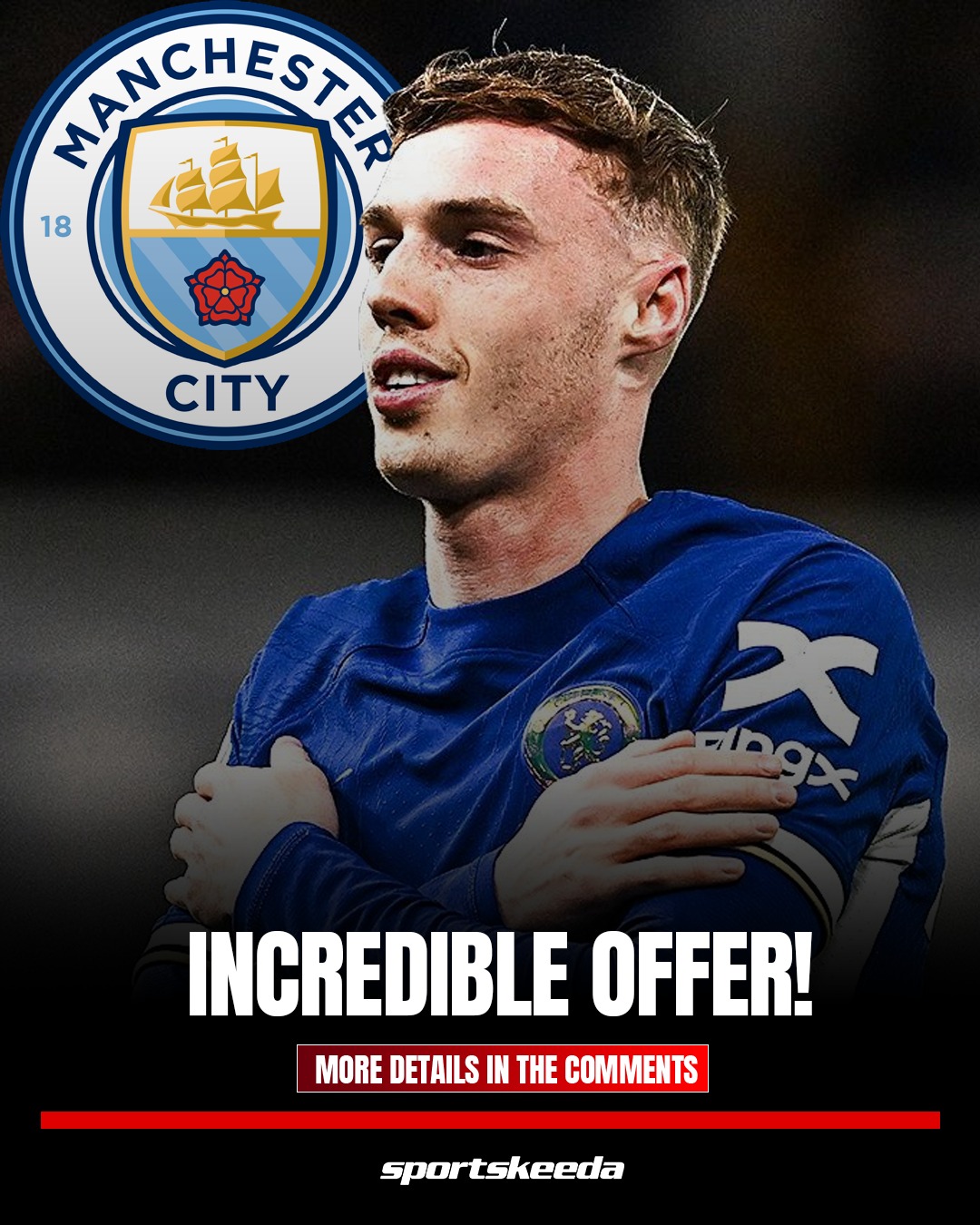
In the world of professional football, careers can pivot on the smallest of moments. A tactical conversation in the training ground, a manager’s encouraging word after a poor performance, or perhaps most unexpectedly, a brief encounter in the VIP section of a rock concert. For Jack Grealish, the Manchester City winger whose future at the Etihad Stadium has been the subject of intense speculation throughout the summer, such a moment may have arrived in the most unlikely of settings.
The backdrop was Heaton Park in Manchester, where the legendary British rock band Oasis had reunited for what many considered one of the most significant musical events of the decade. Among the thousands of fans gathered to witness this historic performance were two figures whose interaction would soon become the talk of the football world: Pep Guardiola, Manchester City’s meticulous and demanding manager, and Jack Grealish, the talented but recently troubled winger whose place in the squad had seemed increasingly uncertain.
According to reports from The Observer’s respected football correspondent Rory Smith, the encounter between manager and player was brief but notably warm and positive in nature. While the exact details of their conversation remain private, witnesses described the interaction as “amicable” and suggested that both men appeared relaxed and engaged in their discussion. For Grealish, who has endured months of speculation about his future, criticism of his performances, and questions about his commitment to the club, this unexpected moment of connection with his manager could prove to be transformational.
The Weight of Expectations
To understand the significance of this encounter, one must first examine the complex journey that has brought Grealish to this crossroads in his career. When Manchester City secured his services from Aston Villa in the summer of 2021 for a British record transfer fee of £100 million, the expectations were astronomical. Grealish arrived as one of the Premier League’s most exciting talents, a player capable of moments of individual brilliance that could decide matches and capture the imagination of supporters worldwide.
His early months at the Etihad showed flashes of the quality that had convinced Guardiola and the City hierarchy to invest so heavily in his services. The 29-year-old demonstrated his ability to operate in Guardiola’s intricate tactical system, showing the intelligence and adaptability required to thrive under one of football’s most demanding coaches. His technical ability, vision, and capacity to create chances from seemingly impossible situations made him a valuable asset in City’s pursuit of domestic and European glory.
However, the path from promising newcomer to established star has proven far more challenging than many anticipated. The recent season was particularly difficult for Grealish, marked by a series of injuries that disrupted his rhythm and prevented him from building the consistency that Guardiola demands from his players. When he was fit and available, his performances often lacked the incisiveness and match-winning quality that had made him such a coveted player during his time at Villa Park.
The injuries were not merely physical setbacks but psychological challenges that tested Grealish’s resilience and mental fortitude. Each return from injury seemed to coincide with increased competition for places, as Guardiola continued to recruit and develop players who could offer different qualities and tactical options. The combination of physical setbacks and mounting competition created a perfect storm that gradually eroded Grealish’s standing within the squad.
The Decline and Its Consequences
As the season progressed, Grealish found himself slipping down the pecking order in a squad renowned for its depth and quality. Guardiola’s rotation policy, which had once seemed to benefit the England international by keeping him fresh and motivated, began to work against him as younger players seized their opportunities and made compelling cases for regular inclusion in the starting eleven.
The arrival of fresh talent further complicated Grealish’s situation. Players like Rayan Cherki brought new energy and different tactical possibilities to the squad, while the emergence of academy products such as Oscar Bobb demonstrated that City’s commitment to developing young talent could create unexpected competition for established stars. These developments were not necessarily a reflection of Grealish’s declining ability, but rather an indication of the relentless pursuit of excellence that defines Manchester City under Guardiola’s leadership.
The most telling sign of Grealish’s diminished status came with his exclusion from Manchester City’s FIFA Club World Cup squad. This omission was particularly significant given the prestige associated with the tournament and the opportunity it represented for players to showcase their abilities on a global stage. For a player of Grealish’s reputation and experience, being left out of such an important competition sent a clear message about his current standing within the club’s hierarchy.
The exclusion from the Club World Cup squad intensified the speculation surrounding Grealish’s future that had been building throughout the summer transfer window. Football journalists and transfer experts began to piece together a narrative of a player whose time at one of Europe’s elite clubs might be drawing to a close, despite the significant investment made in securing his services just a few years earlier.
Transfer Speculation and Market Interest
The uncertainty surrounding Grealish’s future naturally attracted attention from clubs across Europe who recognized that Manchester City’s potential willingness to allow him to leave could represent a significant opportunity. The player’s proven Premier League experience, international pedigree, and demonstrated ability to perform at the highest level made him an attractive proposition for numerous clubs seeking to strengthen their attacking options.
Tottenham Hotspur emerged as one of the most prominent suitors, with reports suggesting that the North London club viewed Grealish as a player who could add creativity and unpredictability to their attacking play. Spurs’ interest was particularly intriguing given their manager’s tactical preferences and the club’s ambitions to challenge for major honors. The possibility of Grealish joining a direct Premier League rival added an extra layer of complexity to any potential transfer negotiations.
West Ham United also entered the conversation, with the East London club reportedly seeing Grealish as a player who could elevate their attacking play and provide the kind of individual quality that could make the difference in crucial matches. Their interest reflected a broader trend of established Premier League clubs seeking to capitalize on the potential availability of proven quality from their more successful competitors.
Everton’s reported interest added another dimension to the speculation, with the Merseyside club potentially offering Grealish the opportunity for regular first-team football and a chance to rebuild his confidence and form. The prospect of joining a club where he would likely be one of the star players, rather than competing with world-class talent for every minute of playing time, could have appealed to a player seeking to rediscover his best form.
Perhaps most intriguingly, Grealish reportedly received and rejected an offer from a major Turkish club, suggesting that he remained selective about his next destination and was not simply seeking any route away from Manchester City. This rejection indicated that the player retained ambitions to compete at the highest level of European football and was not yet ready to consider moves that might be perceived as steps down from his current status.
The situation became even more complex with reports of interest from Napoli, the Italian giants who have established themselves as a force in Serie A and European competition. The prospect of playing in Italy, with its rich footballing culture and tactical sophistication, could have offered Grealish a different kind of challenge and the opportunity to reinvent himself in a new environment.
Manchester City’s Position
From Manchester City’s perspective, the situation required careful management. The club’s investment in Grealish meant that any decision regarding his future needed to be weighed against both financial considerations and the potential impact on squad dynamics. Reports suggested that while City were not actively pushing Grealish toward the exit, they would be open to allowing him to leave on loan if the right opportunity presented itself.
This approach reflected the club’s broader philosophy of maintaining squad harmony while protecting their investment in players. By remaining open to loan deals rather than permanent transfers, City could potentially retain some control over Grealish’s development while giving him the opportunity to rediscover his form in a different environment. Such an arrangement could benefit all parties involved, allowing Grealish to rebuild his confidence while preserving City’s long-term options.
The club’s stance also demonstrated their understanding of the modern transfer market’s complexities. Rather than forcing through a hasty sale that might not reflect the player’s true value, City appeared willing to explore creative solutions that could serve everyone’s interests. This patient approach is characteristic of the club’s strategic thinking under their current ownership and management structure.
Guardiola’s own position on Grealish’s future had remained diplomatically neutral in public statements, with the manager typically emphasizing the importance of having motivated players who are committed to the club’s objectives. However, his reputation for giving players second chances, particularly those who demonstrate the right attitude and tactical understanding, suggested that Grealish’s future might not be as predetermined as some observers believed.
The Concert Encounter
Against this backdrop of uncertainty and speculation, the encounter between Grealish and Guardiola at the Oasis concert takes on particular significance. The setting itself was notable—a relaxed, social environment far removed from the pressures and formalities of the training ground or match day. In such circumstances, conversations can take on a different character, allowing for more personal and honest exchanges that might not occur in professional settings.
The choice of both men to attend the same concert also speaks to their connection to Manchester and its cultural landscape. For Guardiola, who has embraced the city and its culture during his time as manager, attending such a significant musical event demonstrates his integration into the local community. For Grealish, whose Birmingham roots and broader Midlands connections have always been important to his identity, the concert represented another way of engaging with the footballing community that has become his professional home.
The fact that their conversation was described as “warm” is particularly significant given the professional challenges that have characterized their recent interactions. In a sport where manager-player relationships can become strained when performances decline or competition intensifies, the maintenance of positive personal connections often proves crucial in determining long-term outcomes.
Witnesses to the encounter noted that both men appeared comfortable and engaged in their discussion, suggesting that any professional tensions had not spilled over into their personal relationship. This distinction between professional evaluation and personal regard is often crucial in football, where managers must make difficult decisions about team selection while maintaining the respect and motivation of all squad members.
The Psychology of Second Chances
Guardiola’s reputation for giving players second chances is well-documented throughout his managerial career. From his time at Barcelona, where he famously reinvented players’ roles and rejuvenated careers that seemed to be stagnating, to his success at Bayern Munich and Manchester City in coaxing improved performances from players who had lost their way, the Catalan coach has consistently demonstrated his belief in redemption and renewal.
This approach stems from Guardiola’s understanding that football careers are rarely linear, and that talented players can experience temporary declines in form or confidence that do not necessarily reflect their true ability or potential contribution to the team. His willingness to work with players who show the right attitude and commitment to improvement has been a hallmark of his success at every club he has managed.
For players experiencing difficult periods, Guardiola’s approach offers both hope and challenge. The hope lies in the knowledge that past struggles will not necessarily determine future opportunities, provided the player demonstrates the necessary commitment to improvement. The challenge comes in meeting the exacting standards that Guardiola sets for tactical understanding, physical preparation, and mental approach to the game.
In Grealish’s case, the conversation at the concert may have provided reassurance that his manager has not written him off despite recent struggles. This psychological boost could prove invaluable in helping the player approach the new season with renewed confidence and determination. The knowledge that Guardiola remains willing to work with him could be the catalyst for a dramatic improvement in both performance and attitude.
The Road to Redemption
Grealish’s return to pre-season training with Manchester City represents the beginning of what could be a crucial period in his career. The upcoming friendly against Palermo on August 9 will provide an early opportunity for him to demonstrate that he has used the summer break productively and is ready to fight for his place in the squad.
Pre-season friendlies, while not carrying the same pressure as competitive matches, offer valuable opportunities for players to showcase their fitness, sharpness, and tactical understanding. For Grealish, these matches will be particularly important as he seeks to convince Guardiola that he deserves consideration for the upcoming season’s challenges.
The competition he faces for places in the squad is formidable. Manchester City’s attacking options include some of the world’s most talented players, each bringing different qualities and tactical possibilities to the team. To earn his place back in the starting eleven, Grealish will need to demonstrate not only his individual quality but also his ability to contribute to the collective success that Guardiola prioritizes above all else.
This challenge extends beyond simply performing well in training or friendly matches. Grealish will need to show that he has learned from his previous struggles and developed a deeper understanding of what Guardiola requires from his players. This might involve accepting a modified role within the team, developing new aspects of his game, or demonstrating greater consistency in both performance and application.
Critical Voices and External Pressure
The pressure on Grealish extends beyond the internal dynamics at Manchester City. External critics, including former professionals and media commentators, have been vocal in their assessment of his recent performances and overall trajectory. Stuart Pearce, the former Manchester City manager, has been particularly critical, suggesting that Grealish has lost some of the attacking threat that made him such a valuable player during his time at Aston Villa.
These criticisms, while difficult to hear, also provide Grealish with clear targets for improvement. Pearce’s comments about declining attacking threat highlight specific areas where the player could focus his efforts during pre-season preparation. The feedback, though harsh, offers a roadmap for the kind of improvements that could help him regain his place in Guardiola’s plans.
The challenge for Grealish lies in filtering constructive criticism from unhelpful noise while maintaining the confidence and self-belief necessary to perform at the highest level. Professional footballers must develop thick skins to survive in an environment where their every action is scrutinized and analyzed, but they must also remain receptive to feedback that can help them improve.
The Tactical Evolution
One factor that could work in Grealish’s favor is Guardiola’s continuous tactical evolution. The Spanish manager is known for his willingness to adapt his approach based on the personnel available to him and the specific challenges posed by different competitions and opponents. This tactical flexibility has often created opportunities for players who might have seemed surplus to requirements to find new roles within the team structure.
Grealish’s versatility could prove valuable in this context. His ability to operate in multiple attacking positions, combined with his technical skills and understanding of the game, provides Guardiola with tactical options that might become important as the season progresses. The demands of competing in multiple competitions, including the Premier League, Champions League, and domestic cup competitions, typically require squad depth and tactical flexibility that could create opportunities for players like Grealish.
The evolution of football tactics more broadly could also create new opportunities for a player with Grealish’s skill set. As teams continue to develop more sophisticated approaches to pressing, positional play, and attacking transitions, players who can operate in tight spaces and create chances through individual skill become increasingly valuable. Grealish’s ability to beat defenders in one-on-one situations and create opportunities for teammates could align with tactical trends that favor technical players who can unlock organized defenses.
The Mental Game
Perhaps the most crucial aspect of Grealish’s potential comeback lies in the mental side of his preparation. Professional football at the highest level is as much a psychological challenge as a physical and technical one, and players who have experienced setbacks must develop the mental resilience necessary to bounce back from disappointment and criticism.
The conversation with Guardiola at the concert may have provided Grealish with the psychological boost needed to approach the new season with renewed confidence. Knowing that his manager has not given up on him could be the foundation for rebuilding the self-belief that is essential for peak performance. This mental aspect of recovery is often underestimated but can be the determining factor in whether a player successfully navigates a difficult period in their career.
The support of teammates, coaching staff, and the broader club infrastructure will also be crucial in helping Grealish rediscover his best form. Manchester City’s culture of continuous improvement and collective success could provide the ideal environment for a player seeking to reinvent himself and prove his worth at the highest level.
Historical Precedents
Football history is filled with examples of players who have overcome difficult periods to achieve great success. Many of the game’s greatest stars have experienced moments when their careers seemed to be at crossroads, only to use those challenges as motivation for remarkable comebacks. The key factors in these success stories often include the support of management, personal determination, and the ability to learn and adapt from previous struggles.
At Manchester City specifically, there have been numerous examples of players who have faced uncertain futures only to become integral parts of successful teams. Guardiola’s track record of helping players overcome adversity and reach new levels of performance provides a template that Grealish could follow if he approaches the challenge with the right mentality and commitment.
The club’s recent history is filled with players who have reinvented themselves under Guardiola’s guidance, adapting their games to meet new demands and discovering aspects of their ability that they might not have known existed. This culture of continuous development and tactical evolution could provide the perfect environment for Grealish to rediscover his best form and establish himself as a key player once again.
The Business Perspective
From a business standpoint, Manchester City’s approach to Grealish’s situation reflects the complex financial realities of modern football. The significant investment made in acquiring his services creates a natural incentive for the club to maximize the return on that investment, whether through his contributions on the pitch or through any eventual transfer fee.
The club’s willingness to consider loan deals rather than immediate permanent transfers suggests a strategic approach that seeks to preserve long-term value while giving Grealish the opportunity to rediscover his form. This approach recognizes that player values can fluctuate significantly based on performance and circumstances, and that patient management of assets can often yield better outcomes than rushed decisions.
The interest from clubs like Tottenham, West Ham, Everton, and Napoli demonstrates that Grealish retains significant market value despite his recent struggles. This external validation of his worth provides Manchester City with options and leverage in any future negotiations, while also offering Grealish reassurance that his talent remains recognized and valued throughout the football world.
The Broader Context
The situation surrounding Grealish’s future also reflects broader trends in modern football, where squad management has become increasingly complex due to financial regulations, tactical demands, and the need to balance immediate success with long-term planning. Clubs like Manchester City must navigate these challenges while maintaining the high standards that have brought them success in recent years.
The emergence of younger players from the academy system adds another layer of complexity to squad management decisions. While clubs invest heavily in recruiting established stars, they must also provide opportunities for homegrown talent to develop and contribute to the first team. Balancing these competing demands requires careful planning and sometimes difficult decisions about which players to prioritize.
For players like Grealish, this environment creates both challenges and opportunities. While competition for places has intensified, the need for squad depth in multiple competitions means that there are still significant opportunities for players who can demonstrate their value and commitment to the team’s success.
Looking Forward
As Manchester City prepares for the new season, the encounter between Grealish and Guardiola at the Oasis concert serves as a reminder that football careers are unpredictable and that seemingly small moments can have profound consequences. The warm nature of their conversation suggests that the door remains open for Grealish to rebuild his career at the Etihad Stadium, but the path forward will require dedication, improvement, and perhaps most importantly, a willingness to embrace whatever role the team needs him to play.
The upcoming friendly against Palermo will provide the first public indication of whether this concert encounter has indeed marked a turning point in Grealish’s Manchester City career. His performance in that match, and in subsequent pre-season fixtures, will be scrutinized for signs that he has used the summer break to address the weaknesses in his game and develop the consistency that Guardiola demands.
More broadly, Grealish’s situation illustrates the constant evolution that defines careers in elite football. Players must continuously adapt to new challenges, overcome setbacks, and prove their worth in environments where standards are constantly rising. Those who succeed in navigating these challenges often emerge stronger and more complete players, while those who fail to adapt may find their careers taking different directions.
The Power of Connection
The significance of the Heaton Park encounter ultimately lies in its demonstration of the human element that exists within the highly professional and often impersonal world of elite football. Despite the tactical complexities, financial pressures, and performance demands that define modern football, the relationships between managers and players remain fundamentally important in determining outcomes.
Guardiola’s willingness to engage warmly with Grealish in a social setting suggests that their professional relationship, while perhaps strained by recent performance issues, has not been permanently damaged. This maintenance of mutual respect and communication creates the foundation upon which a potential career revival could be built.
For Grealish, the knowledge that his manager remains open to working with him could provide the motivation and confidence needed to approach the new season with renewed determination. Sometimes, the difference between success and failure in professional sport lies not in grand gestures or dramatic moments, but in small acts of support and encouragement that help players believe in themselves once again.
Conclusion
As Manchester City prepares for another season of challenging for the highest honors in domestic and European football, the future of Jack Grealish remains one of the most intriguing subplots. His encounter with Pep Guardiola at the Oasis concert may prove to be a turning point in a career that has experienced both tremendous highs and recent struggles.
The coming weeks and months will reveal whether this moment of connection can translate into improved performances on the pitch and a renewed sense of purpose in Grealish’s career. What remains certain is that in the unpredictable world of professional football, no story is ever truly finished, and the most unexpected moments can often prove to be the most significant.
Whether Grealish’s Manchester City story ends with a triumphant comeback or a respectful departure to pursue new challenges remains to be seen. But in the warm Manchester evening at Heaton Park, amid the euphoria of an Oasis reunion, two men shared a conversation that may have changed the course of one of English football’s most talented players. In a sport where margins are often measured in millimeters and split seconds, sometimes the most important moments happen away from the pitch, in the spaces where human connection transcends professional obligation.
The beautiful game continues to surprise us with its capacity for redemption, second chances, and unexpected plot twists. For Jack Grealish, the next chapter of his story is about to be written, and it may well begin with a conversation at a concert that reminded him that in football, as in music, the most powerful moments often come when we least expect them.
